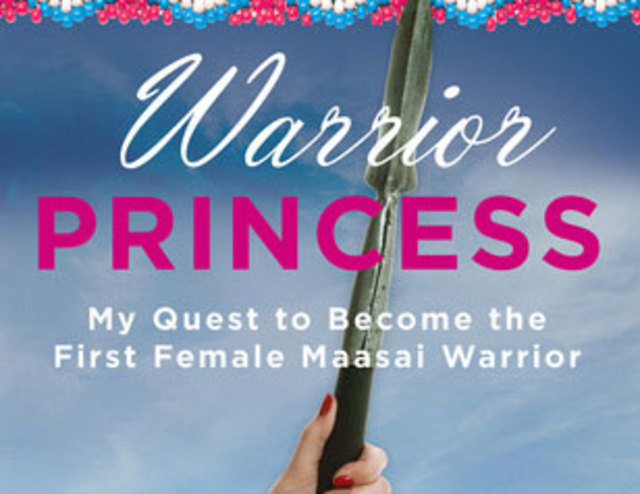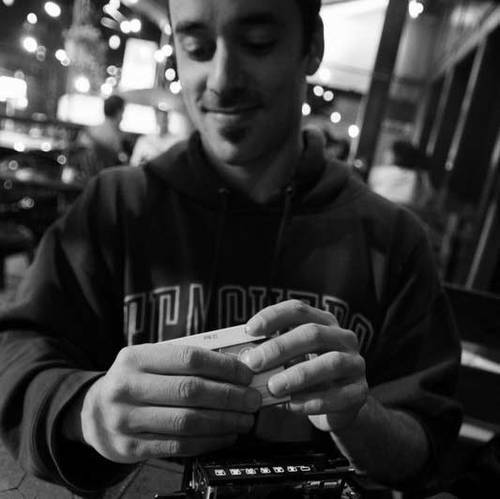 Exciting news! I’m going to be on a panel with one of my favourite video bloggers, Jay Smooth of Ill Doctrine!
Exciting news! I’m going to be on a panel with one of my favourite video bloggers, Jay Smooth of Ill Doctrine!
The Revolution Will Be Online (A Panel at Ford Hall)
Date: Thursday, October 2, 2014
Time of Forum: 6:30 p.m. – 8:00 p.m., EST
Location: African Meeting House, Museum of African American History, 46 Joy St., Boston, MA 02114.
Featuring Jay Smooth (blogger, The Ill Doctrine), Spectra Speaks (blogger, Spectra Speaks), and Andrew Ti (blogger, Yo, Is This Racist?), and moderated by Callie Crossley (broadcast journalist and radio host, WGBH’s Under the Radar). This event is co-sponsored by The Museum of African American History, ArtWeek Boston, and the Boston Literary District.
We’ll be chatting about a topic that speaks to the crux of all my work: the power of online conversations to propel change in the digital era. Check out the event description below, with my favourite part in bold.
In honor of the 50th anniversary of the Civil Rights Act, Ford Hall Forum convenes this panel of popular anti-racism bloggers to discuss how far we’ve come – or haven’t – since 1964. What does racism and anti-racism look like from a Millennial perspective, and how do activists relate to those who came before them? This nuanced conversation will touch upon multiracial contexts, the value of intersectionality, the perils and perks of connecting via commenting, and more. Broadcast journalist Callie Crossley sits down with Andrew Ti, Spectra Speaks, and Jay Smooth for an in-person discussion on how, 50 years later, racism is fought through the world’s electronic town hall.
Don’t Mind My Pre-Panel Pontification
I’ve never described myself as an ‘anti-racist’ blogger; I write about love, empathy, relationships, and media as powerful tools for change. This, of course, includes tackling racism, among other things — democratising storytelling, promoting African voices, ending homophobia, and challenging single-issue politics. Ironically, my online platform and networks are expansive, allowing me the freedom to fully participate in a variety of cross-conversations about making the world better. It’s in ‘real life’ I constantly have to fight against political fragmentation.
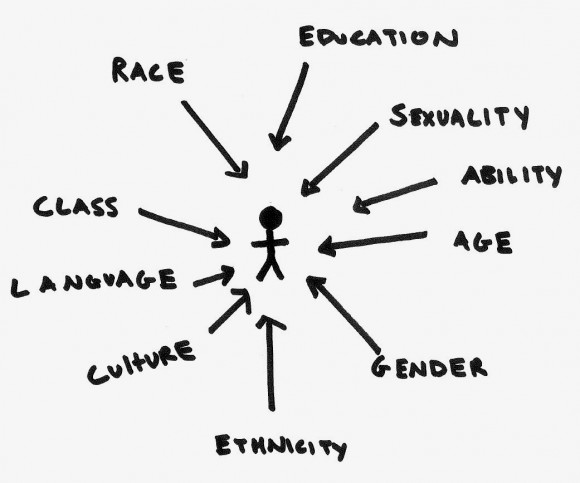 Case in Point: As I previously committed to attending this forum to discuss racism in honour of the Civil Rights Act 50th anniversary, I was unable to attend the History Project’s “Historymaker Awards Ceremony,” in which I would have been introducing a really good friend of mine – Omar Thomas, a black gay composer who wrote the first civil rights anthem for the LGBT community – for his award. Similarly, by being in the US for LGBT history month, I’m missing a series of really awesome events back home (and in the US actually) for Nigeria’s 100th year of independence. Le sigh.
Case in Point: As I previously committed to attending this forum to discuss racism in honour of the Civil Rights Act 50th anniversary, I was unable to attend the History Project’s “Historymaker Awards Ceremony,” in which I would have been introducing a really good friend of mine – Omar Thomas, a black gay composer who wrote the first civil rights anthem for the LGBT community – for his award. Similarly, by being in the US for LGBT history month, I’m missing a series of really awesome events back home (and in the US actually) for Nigeria’s 100th year of independence. Le sigh.
Yes, life happens. Calendar conflicts happen. No one’s out to make my choices – of which political event to attend – more difficult. But in the spirit of this upcoming conversation about identity, digital media, and revolution, I feel compelled to share that my connections online grant me far more freedoms to express (and educate others on) the multiple facets of my identity and experiences, than the connections in what critics insist is my “real life” offline.
But While I’m On the Subject: Online vs. Offline Activism, Let’s Discuss
For the record, I don’t believe our lives online vs offline can be so finitely distinguished. If you take a look at how the Kony 2012 social campaign influenced thousands of people to “real life” take action, or how localised efforts to bring back the kidnapped Nigerian girls were bolstered by the #bringbackourgirls hashtag, it shouldn’t be hard to see how interdependent our digital and physical spaces have become (and always have been). That said, there are nuances worth discussing.
Online, I just am: Spectra talking about racism, Spectra talking about love, Spectra talking about Africapitalism, and technology, and X-Men, all from the same channel. Needless to say, my followers are frequently confronted with the fact that I am more than just this or that, but the sum of all my parts, a fact which is more easily overlooked in offline spaces, that aren’t as ubiquitous.
For example, African-Americans who began following me *in solidarity* for my article about Hollywood’s racist casting of the Nina Simone biopic, got to hear me rant quite bitterly about the US black media’s erasure of Lupita Nyong’o’s African identity — mainly referring to her as black the minute she won an oscar — just a few months later. A quick glance of my twitter feed (or overly political bio) may likely have helped folk reconcile the two: she’s a black woman, and she’s Nigerian/African, ah I get it.
If only using my full self to contextualise my political perspectives were that easy in physical spaces.
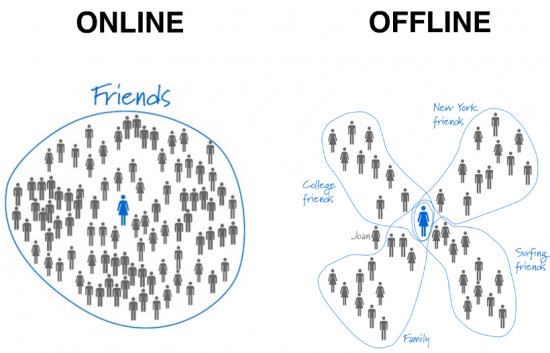 Offline, fighting against isms feels more silo-ed, complicated, compartmentalised even. This is evidenced by how many times I’ve been invited to speak at a prestigious college, say by a minority student group for black history month, and then asked, for example, to “just focus on the race side of things,” as adding in my African identity may be “too complicated.” (No lie). I may have been able to avoid countless awkward interactions with African feminists who upon proclaiming their disdain for the gays ruining Africa, I relayed I was in a same-sex relationship. (Yikes, where’s a halo-like twitter bio when you need one?)
Offline, fighting against isms feels more silo-ed, complicated, compartmentalised even. This is evidenced by how many times I’ve been invited to speak at a prestigious college, say by a minority student group for black history month, and then asked, for example, to “just focus on the race side of things,” as adding in my African identity may be “too complicated.” (No lie). I may have been able to avoid countless awkward interactions with African feminists who upon proclaiming their disdain for the gays ruining Africa, I relayed I was in a same-sex relationship. (Yikes, where’s a halo-like twitter bio when you need one?)
Meanwhile, all this talk of online revolutions has also got me thinking about the way we talk about media, merely as a communications channel, a resource we all should be using to raise hell about the issues that make our blood boil (provided we’re all granted equal access).
As we discuss whether or not we think the revolution will be online, it’s important that we don’t forget that media is more than just a channel; media is a battleground in and of itself, one which not everyone has the privileged to fight within.Â
For decades, we’ve been discussing the mis- and under-representation of minority voices in major news and media, which influence public opinion, government, and society as we know it. Yet, across the most popular social media platforms, there are more marginalised groups ‘participating’ as consumers than there are producers, a category of influence still dominated by rich, white men – yes, the same ones who own the corporations that don’t just monitor, own and control your content, but sell private information to the highest bidder.
Access to technology is influenced by socio-economic factors and controlled by the ruling class. Even now, in this new era of democratised media power — even online, the most vulnerable of us are still not safe: women still experience sexual violence; LGBT people are still outed against their will; women of colour are still dehumanised, and much more.
So, will the revolution be online? Oh I think it has to be. The revolution should be wherever we need to defend ourselves with all manner of armour and weaponry.Â
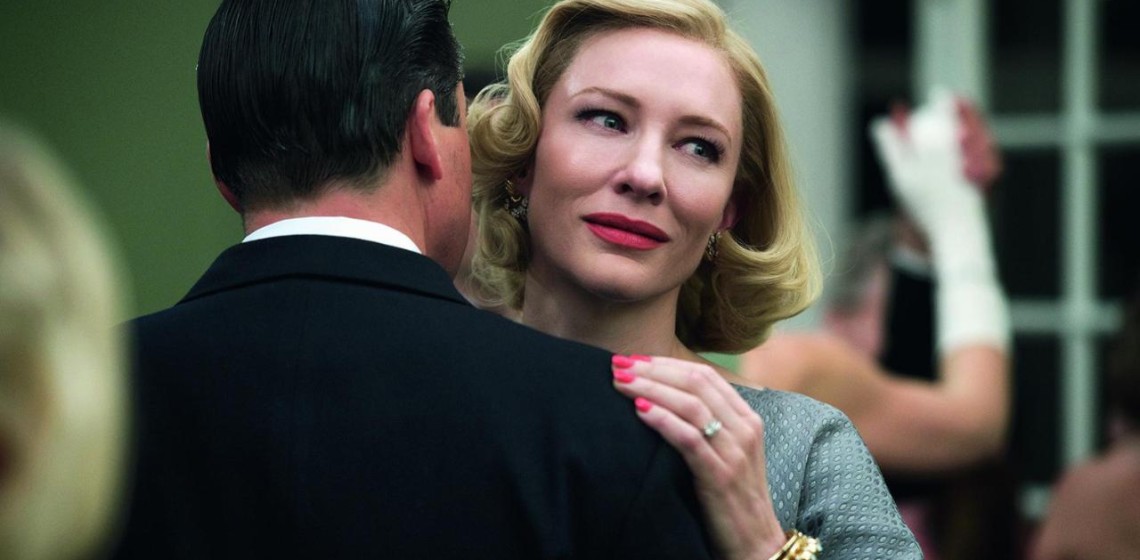


 Exciting news! I’m going to be on a panel with one of my favourite video bloggers, Jay Smooth of Ill Doctrine!
Exciting news! I’m going to be on a panel with one of my favourite video bloggers, Jay Smooth of Ill Doctrine! Case in Point: As I previously committed to attending this forum to discuss racism in honour of the Civil Rights Act 50th anniversary, I was unable to attend the History Project’s “Historymaker Awards Ceremony,” in which I would have been introducing a really good friend of mine – Omar Thomas, a black gay composer who wrote the first civil rights anthem for the LGBT community – for his award. Similarly, by being in the US for LGBT history month, I’m missing a series of really awesome events back home (and in the US actually) for Nigeria’s 100th year of independence. Le sigh.
Case in Point: As I previously committed to attending this forum to discuss racism in honour of the Civil Rights Act 50th anniversary, I was unable to attend the History Project’s “Historymaker Awards Ceremony,” in which I would have been introducing a really good friend of mine – Omar Thomas, a black gay composer who wrote the first civil rights anthem for the LGBT community – for his award. Similarly, by being in the US for LGBT history month, I’m missing a series of really awesome events back home (and in the US actually) for Nigeria’s 100th year of independence. Le sigh. Offline, fighting against isms feels more silo-ed, complicated, compartmentalised even. This is evidenced by how many times I’ve been invited to speak at a prestigious college, say by a minority student group for black history month, and then asked, for example, to “just focus on the race side of things,” as adding in my African identity may be “too complicated.” (No lie). I may have been able to avoid countless awkward interactions with African feminists who upon proclaiming their disdain for the gays ruining Africa, I relayed I was in a same-sex relationship. (Yikes, where’s a halo-like twitter bio when you need one?)
Offline, fighting against isms feels more silo-ed, complicated, compartmentalised even. This is evidenced by how many times I’ve been invited to speak at a prestigious college, say by a minority student group for black history month, and then asked, for example, to “just focus on the race side of things,” as adding in my African identity may be “too complicated.” (No lie). I may have been able to avoid countless awkward interactions with African feminists who upon proclaiming their disdain for the gays ruining Africa, I relayed I was in a same-sex relationship. (Yikes, where’s a halo-like twitter bio when you need one?)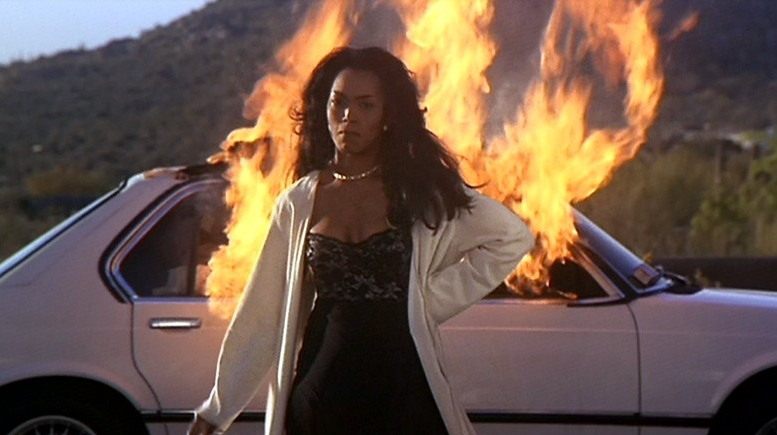
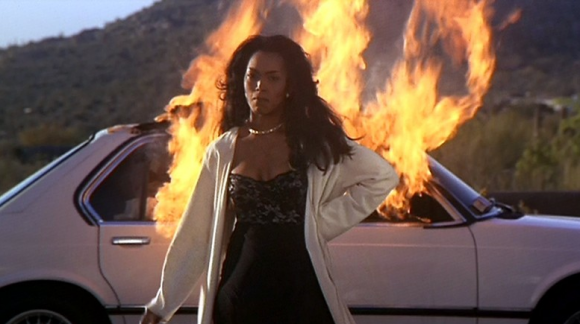
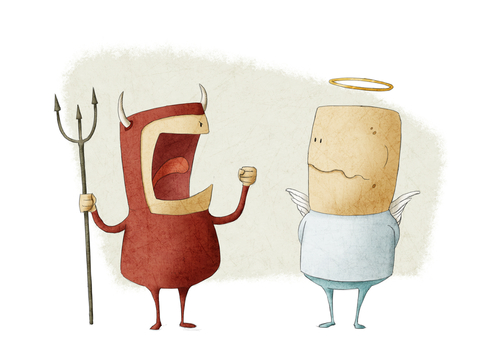 Really, to repeatedly “rise above” the most frustrating, painful, or otherwise emotionally debilitating situations due to racism, sexism, homophobia, other power struggles, or even our personal relationships, practically demands we deny our human instincts: to flee, to defend, to scream in the face of violence.
Really, to repeatedly “rise above” the most frustrating, painful, or otherwise emotionally debilitating situations due to racism, sexism, homophobia, other power struggles, or even our personal relationships, practically demands we deny our human instincts: to flee, to defend, to scream in the face of violence.
